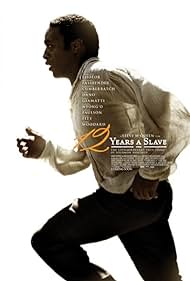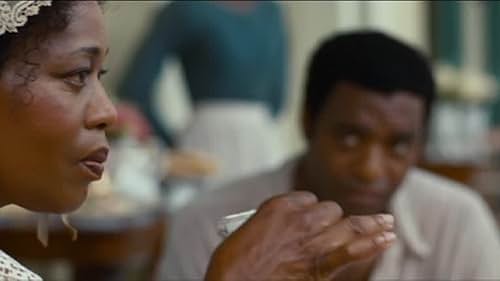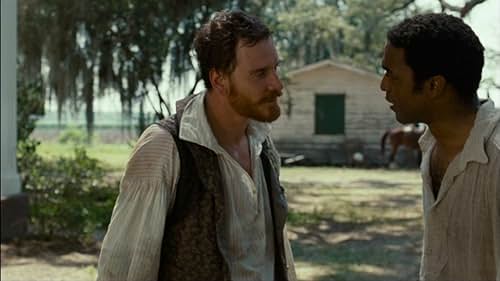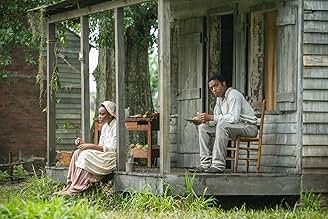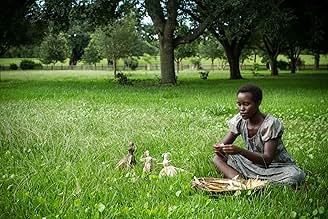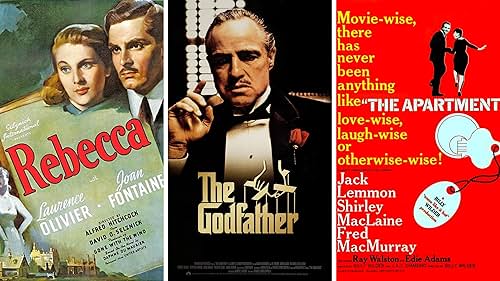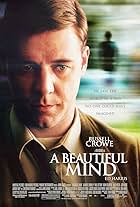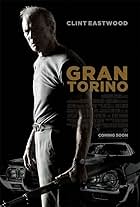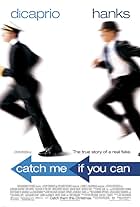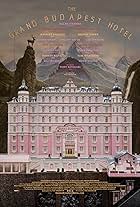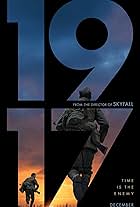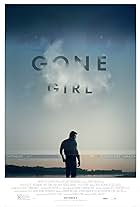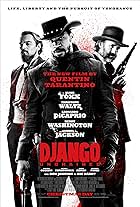In the antebellum United States, Solomon Northup, a free black man from upstate New York, is abducted and sold into slavery.In the antebellum United States, Solomon Northup, a free black man from upstate New York, is abducted and sold into slavery.In the antebellum United States, Solomon Northup, a free black man from upstate New York, is abducted and sold into slavery.
- Won 3 Oscars
- 244 wins & 337 nominations total
- Director
- Writers
- All cast & crew
- Production, box office & more at IMDbPro
Best Picture Winners by Year
Best Picture Winners by Year
See the complete list of Best Picture winners. For fun, use the "sort order" function to rank by IMDb rating and other criteria.
Storyline
Did you know
- TriviaThe tree where Solomon sees several men being lynched was actually used for lynching, and is surrounded by the graves of murdered slaves.
- GoofsWhen "Platt" is explaining how to bring the logs down the river, the overseer scornfully asks him where he became an expert in engineering and "terraforming." This a word coined by science fiction author Jack Williamson in 1942, almost exactly 100 years after the scene takes place.
- Quotes
Solomon Northup: I don't want to survive. I want to live.
- Crazy credits"Solomon brought the men responsible for his abduction to trial. Unable to testify against whites in the nation's capital, he lost the case against the slave pen owner, James Burch. After lengthy legal proceedings in New York, his kidnappers Hamilton and Brown also avoided prosecution."
- ConnectionsFeatured in The Onion Film Standard: 12 Years a Slave (2013)
Featured review
Let's be honest about it: this spotlight on the darkest days of American history is a particularly British triumph. The brilliant director (and artist) Steve McQueen and outstanding Chiwetel Ejiofor, as the eponymous Solomon Northup, are both British; even Michael Fassbender, in the main support role as a sadistically brutal slave-owner, is half British; and Benedict Cumberbatch makes an appearance as a 'kinder' slave owner.
But, of course, there is a vast array of American talent here too. As always, Sean Bobbitt is inspiring as director of photography, making full use of the Louisiana locations. And a host of fine US actors make cameo appearances, notably Brad Pitt (who was one of the 10 producers), Paul Giamatti (looking as if he had walked straight out of the TV mini series "John Adams"), Sarah Paulson and Alfre Woodard. In her first film role, Lupita Nyong'o gives a heart-rending performance as a young slave who is horrendously abused. Original music by Hans Zimmer and use of contemporary songs add to the searing atmosphere of the work
McQueen is unrelenting in his focus: except for short pieces at the beginning and the end of the film, all the time is the period in captivity and, except for occasional glimpses of humanity, we see the slaves subjected to humiliation and horror again and again and again. McQueen's style is slow and penetrating with some long and wordless scenes totally captivating.
As a piece of social history, this movie is simply stunning - a virtual blow to the solar plexus. As a cinematic work, it has some challenges: there is no conventional narrative arc in which a plot unfolds or a character develops because Northrup is confined to a small geographical space where he can only survive by keeping as low a profile as possible; the characters are literally black and white with little subtlety or nuance; and there is not really a sense that the period of incarceration is more than a decade.
At the start and finish of the film, we are reminded that this is a true story based on the book written by Northup in 1853, once he finally re-acquired his freedom (in a pedestrian act of bureaucracy rather than anything more dramatic or violent). As if Northup has not suffered enough, we learn that his legal actions against both those who sold and bought him failed in the courts. A special award should go to McQueen's Dutch partner Bianca Stigter who discovered Northup's book and recommended it to the director.
But, of course, there is a vast array of American talent here too. As always, Sean Bobbitt is inspiring as director of photography, making full use of the Louisiana locations. And a host of fine US actors make cameo appearances, notably Brad Pitt (who was one of the 10 producers), Paul Giamatti (looking as if he had walked straight out of the TV mini series "John Adams"), Sarah Paulson and Alfre Woodard. In her first film role, Lupita Nyong'o gives a heart-rending performance as a young slave who is horrendously abused. Original music by Hans Zimmer and use of contemporary songs add to the searing atmosphere of the work
McQueen is unrelenting in his focus: except for short pieces at the beginning and the end of the film, all the time is the period in captivity and, except for occasional glimpses of humanity, we see the slaves subjected to humiliation and horror again and again and again. McQueen's style is slow and penetrating with some long and wordless scenes totally captivating.
As a piece of social history, this movie is simply stunning - a virtual blow to the solar plexus. As a cinematic work, it has some challenges: there is no conventional narrative arc in which a plot unfolds or a character develops because Northrup is confined to a small geographical space where he can only survive by keeping as low a profile as possible; the characters are literally black and white with little subtlety or nuance; and there is not really a sense that the period of incarceration is more than a decade.
At the start and finish of the film, we are reminded that this is a true story based on the book written by Northup in 1853, once he finally re-acquired his freedom (in a pedestrian act of bureaucracy rather than anything more dramatic or violent). As if Northup has not suffered enough, we learn that his legal actions against both those who sold and bought him failed in the courts. A special award should go to McQueen's Dutch partner Bianca Stigter who discovered Northup's book and recommended it to the director.
- rogerdarlington
- Jan 18, 2014
- Permalink
Details
- Release date
- Countries of origin
- Official sites
- Language
- Also known as
- 12 años esclavo
- Filming locations
- Production companies
- See more company credits at IMDbPro
Box office
- Budget
- $20,000,000 (estimated)
- Gross US & Canada
- $56,671,993
- Opening weekend US & Canada
- $923,715
- Oct 20, 2013
- Gross worldwide
- $187,734,091
- Runtime2 hours 14 minutes
- Color
- Sound mix
- Aspect ratio
- 2.35 : 1
Contribute to this page
Suggest an edit or add missing content

